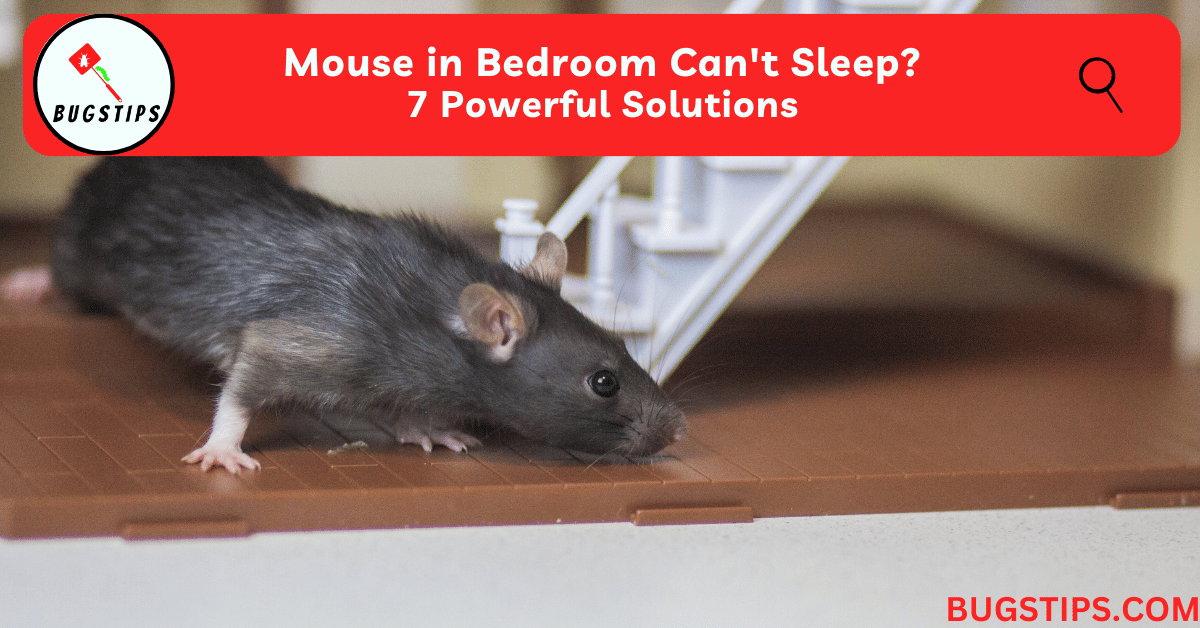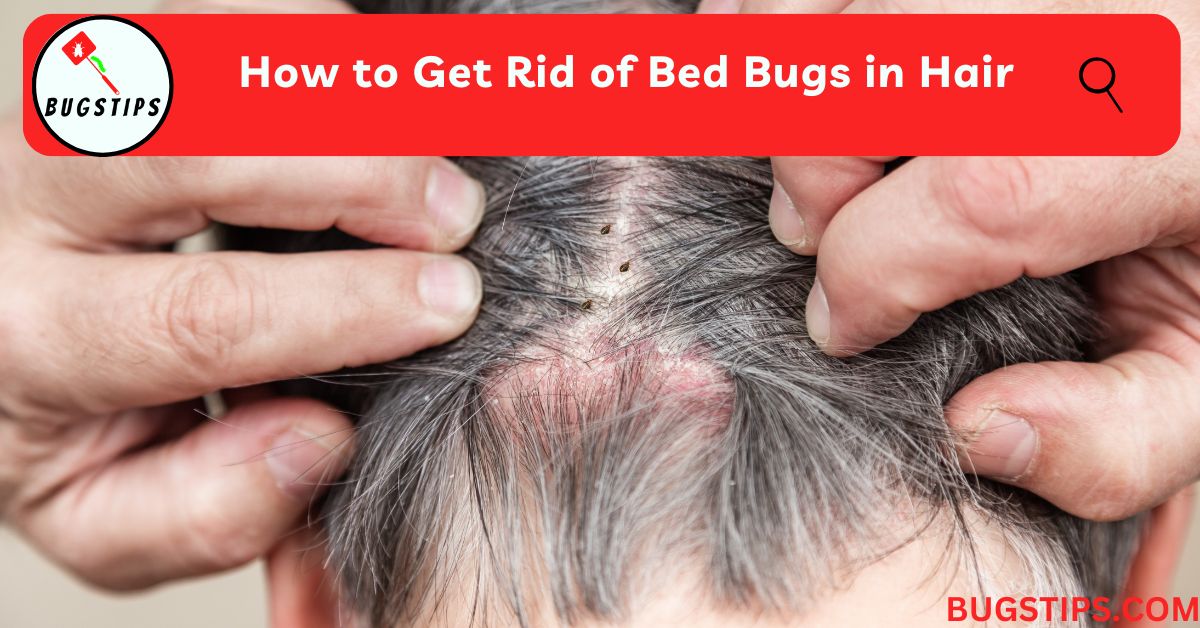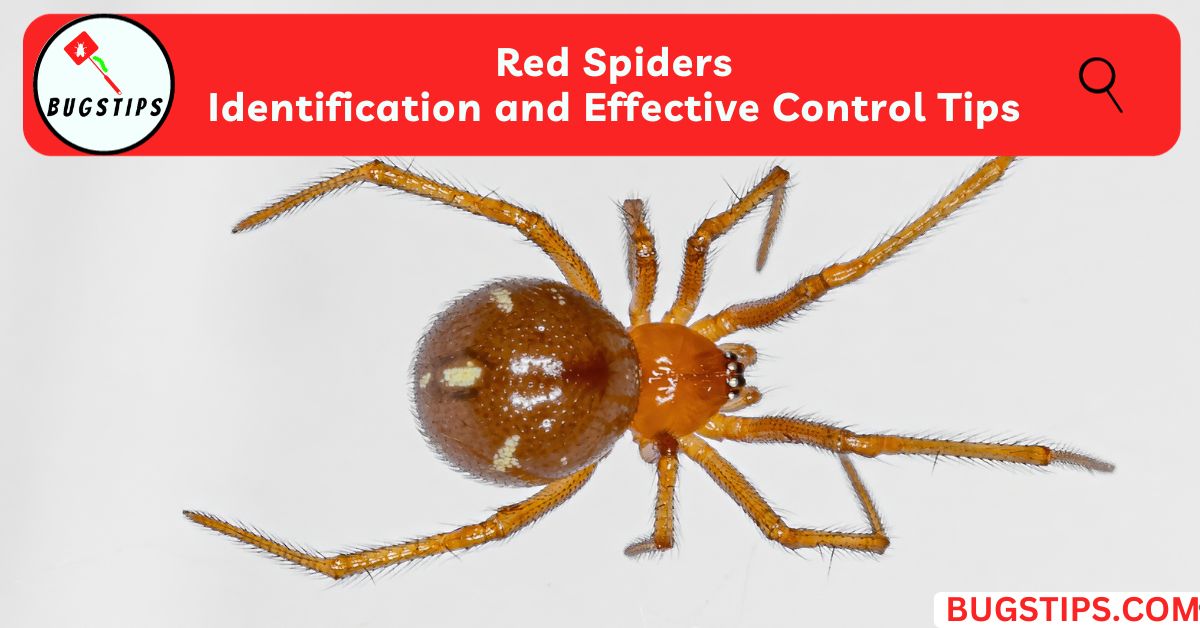This post may contain affiliate links which means as an Amazon Associate, this site may earn a small commission on qualified purchases made through links at no extra cost to you. Learn more on Affiliate Disclosure
Dealing with a mouse in your bedroom can be a real nightmare, especially when you can’t sleep because of the pitter-patter of little feet or the sound of squeaking and scratching.
If you found a mouse in your bedroom and can’t sleep, This article is for you. In this article, we’ll explore the reasons why mice end up in bedrooms, how to identify the signs of a mouse infestation, and what you can do to get rid of mice in your bedroom so you can finally get a good night’s rest.
So, if you’re tired of sharing your bedroom with a mouse and can’t sleep, keep reading!
Why Would Mice Be in the Bedroom?
Mice are small rodents that can easily find their way into homes, including bedrooms. Here are some possible reasons why mice might be in your bedroom:
Seeking Warmth
- Mice are attracted to warm and cozy spaces, and your bedroom provides just that.
- During the colder months, mice may seek refuge in your bedroom to escape the chill outside.
Nesting
- Mice are known to build nests in secluded and hidden areas, such as inside bedding, clothes, or furniture.
- If they find a suitable spot in your bedroom, they may decide to set up their nest there.
Accidentally Entered Your Bedroom
- Sometimes, mice may enter your bedroom by accident while they are searching for food or exploring their surroundings.
- They may find an open window or door and wander inside, only to get trapped.
Food Source
- If you keep snacks, crumbs, or pet food in your bedroom, it can attract mice. Even the tiniest morsel of food can entice these rodents.
- They have a keen sense of smell and can detect food from a distance, prompting them to venture into your bedroom in search of a tasty treat.
Mice Infestation
- If you have a mice infestation in your home, some of the mice may end up in your bedroom.
- Mice can reproduce quickly, and if left unchecked, their population can grow rapidly, leading to a widespread infestation.
Alluring Scent
- Believe it or not, mice can be attracted to certain scents in your bedroom.
- Perfumes, lotions, and even the smell of dirty laundry can pique their curiosity and draw them closer.
- Mice have a highly sensitive sense of smell, allowing them to detect scents that may be pleasant or intriguing to them.
Identifying the reason why mice are in your bedroom can help you determine the best course of action to get rid of them.
Related Article – Boric Acid for Mice | Does Boric Acid Kill Mice?
Signs of Mice in the Bedroom
If you suspect that mice have made their way into your bedroom, there are some common signs that indicate the presence of mice in your bedroom.
Here are some of the most noticeable signs
Mouse Droppings
- One of the most obvious signs of mice in the bedroom is the presence of small, pellet-like droppings.
- These droppings are typically dark in color and resemble grains of rice.
- You may find them scattered near their nesting areas, along baseboards, or inside drawers and cabinets.
Gnaw Marks
- Mice have a constant need to gnaw on objects to keep their teeth from growing too long.
- As a result, they leave behind gnaw marks on various surfaces in your bedroom.
- Look for chewed edges on furniture, wooden fixtures, electrical wires, and even cardboard boxes.
- Fresh gnaw marks may appear lighter in color, while older ones may be darker and more pronounced.
Urine Odor and Stains
- Mice have a strong scent that becomes particularly noticeable in confined spaces like a bedroom.
- If you detect a strong, musky odor that seems to linger in your bedroom, it could be a sign of mice.
- Additionally, urine stains may be visible on floors, walls, or fabrics, especially in areas frequented by mice.
Smear Marks
- As mice move around your bedroom, they may leave greasy smear marks along walls, baseboards, and other surfaces.
- These marks are a result of their fur rubbing against the surfaces as they navigate through tight spaces.
- The smear marks may appear as dark, greasy streaks and are often found along their regular pathways.
Squeaking or Scratching Sounds
- If you hear faint squeaking, rustling, or scratching sounds coming from within your bedroom, it’s highly likely that mice are present.
- These noises are most commonly heard at night when mice are active.
- Pay attention to any sounds emanating from walls, ceilings, or under furniture.
Identifying these signs of mice in your bedroom can help you take action to get rid of them before the infestation gets worse.
You May Also Like – How To Get Rid of Ants in Bedroom: 10 EASY Methods
Where Do Mice Hide in Bedrooms?
Mice are resourceful creatures that can find hiding spots in various nooks and crannies of your bedroom.
Here are some common spots where mice hide in bedrooms

- Behind Furniture
- Mice often seek refuge behind or underneath furniture, such as beds, dressers, and nightstands.
- These spaces provide them with a cozy and secluded area to build their nests and stay hidden during the day.
- Inside Closets
- Dark and cluttered closets make perfect hiding places for mice.
- They can squeeze into tight gaps between clothes, boxes, or stored items, making it challenging to spot them.
- Check for signs of droppings or gnaw marks within your closets.
- In Bedding
- Mice may take advantage of the warmth and softness of your bedding to nest and hide.
- They can burrow into pillows, blankets, or even the mattress itself.
- Pay close attention to any signs of shredded fabric or droppings on your bed.
- Behind Wall Coverings
- Mice are excellent climbers and can access wall voids through small openings or gaps.
- Once inside the walls, they can travel between rooms and make their way into your bedroom.
- Look out for any scratching sounds or small holes in the walls.
- Within Storage Boxes
- If you have storage boxes or containers in your bedroom, mice may view them as potential hiding spots.
- These boxes provide dark and undisturbed areas where mice can seek shelter and build their nests.
- Inspect the boxes for any signs of chewed materials or droppings.
- Under Carpets or Rugs
- Mice may create burrows or pathways beneath carpets or rugs, allowing them to move around your bedroom undetected.
- Lift and inspect the edges of carpets or rugs for any signs of tunneling or gnaw marks.
- Ceiling Voids or Attics
- In some cases, mice may access the bedroom through ceiling voids or attics.
- They can traverse through walls and ceiling spaces, using them as highways to navigate throughout your home.
- Keep an eye out for any entry points or signs of mouse activity in these areas.
Mouse in the Bedroom: Is It Safe to Sleep?
Having a mouse in your bedroom can be unsettling, especially if you’re concerned about your safety or hygiene.
Here are some common concerns people have about sleeping with a mouse present
Will Mice Climb on Me While I Sleep?
While it’s possible for a mouse to climb onto your bed, it is unlikely to happen unless it feels threatened or is in search of food.
Mice are more interested in finding sources of food and creating nests rather than climbing onto sleeping humans. They prefer to remain hidden and avoid direct contact.
However, if you want to take extra precautions, you can create a barrier between yourself and the mouse. Ensure your bed is positioned away from walls or other surfaces that the mouse can easily access.
Will Mice Bother Me While I’m Sleeping?
Mice are generally nocturnal and are most active at night. They may make noise or cause other disruptions while you’re sleeping, but they are unlikely to bother you directly.
Is It Safe to Sleep with a Mouse in the Room?
It’s generally safe to sleep with a mouse present. However, it’s important to remember that mice can carry diseases and may contaminate your bedding or other items in your room with their droppings or urine.
If you’re concerned about your health or hygiene, it’s best to take action to get rid of the mouse as soon as possible.
Mouse in Bedroom Can’t Sleep? Here’s What You Can Do
If you have a mouse in your bedroom, You may be wondering what you should do to get rid of the mouse and how to ensure that you can sleep peacefully without fear of it crawling on you.
Here are some tips and strategies to help you handle the situation and get a good night’s sleep.
Use Mouse Traps
Mouse traps are a popular and effective way to catch and eliminate mice. There are various types of traps available, such as snap traps, glue traps, or humane catch-and-release traps.
Place the traps strategically in areas where you have noticed mouse activity or along their likely travel paths. Be sure to follow the instructions provided with the traps for optimal results.
Use Weather Strips or Metal Door Draft Stopper
Weather strips are adhesive strips made of foam, rubber, or other materials that can be easily attached to the edges of doors and windows.
They provide an extra layer of insulation and seal any openings that may serve as entry points for mice. Make sure to measure the dimensions of your doors and windows accurately to ensure a proper fit.
Metal door draft stoppers are rigid strips or plates made of metal or heavy-duty plastic. They are designed to be attached to the bottom of doors to prevent drafts and seal gaps.
These draft stoppers can also serve as a barrier against mice, as they make it harder for them to slip under the door.
Use Essential Oils
Using essential oils, such as peppermint oil, can be an effective method to deter mice from entering or hiding in your bedroom.
Peppermint oil has a strong scent that mice find unpleasant, making it an excellent natural repellent
Spray the peppermint oil solution in areas where mice are likely to enter or hide in your bedroom. Focus on potential entry points, corners, baseboards, and areas where you have noticed mouse activity.
Use Bed Risers
Another effective method to prevent mice from accessing your bed and hiding in your bedroom is by using bed risers.
Bed risers are elevated platforms that raise the height of your bed, creating additional space underneath.
This extra space can act as a deterrent for mice, as it reduces their ability to reach your bed and find shelter.
Sleep with Your Cat
If you have a cat, consider allowing it to sleep in your bedroom. Cats are natural predators of mice and their presence alone can act as a deterrent.
The scent and predatory instincts of cats can help keep mice at bay. However, it’s important to ensure that your cat is comfortable and has a designated space to sleep in your bedroom.
Related Article – Can a Rat Bite Kill a Dog? Expert Guide
Fix Water Leaks
Mice are attracted to sources of water, so fixing any water leaks in your bedroom is crucial.
Moisture can attract mice and create an environment that is conducive to their survival. Repair any leaks promptly and ensure proper drainage to eliminate potential water sources for the mice.
Remove Clutter and Get Rid of Food and Crumbs
Mice love cluttered spaces as they provide ample hiding spots and nesting materials. Keep your bedroom clean and organized by decluttering regularly.
Remove piles of clothes, unnecessary boxes, and other items that may serve as hiding places for mice.
it’s important to eliminate any potential food or crumbs in your bedroom because Mice are attracted to food sources.
Avoid eating in bed and regularly clean up any food residues. Store food in airtight containers to prevent mice from accessing it.
Did Nothing Work? Call an Exterminator
So if you’ve tried various methods to get rid of a mouse in your bedroom and nothing seems to be working, it may be time to call in a professional exterminator.
Here are some signs that you may need to call an exterminator
- You’ve tried multiple methods to get rid of the mouse, but it keeps coming back.
- You have a severe mouse infestation, with multiple mice present in your bedroom or other areas of your home.
- You’re concerned about the safety of using traps or chemicals on your own.
When you call an exterminator, they will inspect your home and identify the source of the problem. They will then recommend a treatment plan based on the severity of the infestation and your specific needs.
Exterminators may use a combination of traps, baits, and chemical treatments to eliminate the mice and prevent them from returning.
Calling an exterminator may be more expensive, but it's often the most effective way to get rid of a mouse infestation.
Final Thoughts
Having a mouse in your bedroom is a common problem that can be unsettling and disruptive to your sleep.
However, there are many solutions available to help you get rid of the mouse and prevent it from coming back. If you’re concerned about your safety or hygiene, take action as soon as possible to eliminate the problem.
You can try various solutions to suit your preference and needs. By taking action, you can get a peaceful night’s sleep without worrying about those pests.
FAQs
Are mice common in bedrooms?
While it’s not uncommon for mice to enter bedrooms, they typically prefer areas with easy access to food, water, and shelter.
How did a mouse get into my bedroom?
Mice can squeeze through small openings, such as gaps in doors, windows, or walls. They may also gain entry through cracks or holes in the foundation or utility lines.
Where do mice nest in a bedroom?
Mice tend to nest in hidden and secluded areas within a bedroom, such as behind furniture, inside walls, in closets, or in bedding materials.
How can I sleep at night with mice running all over my bedroom?
It can be challenging to sleep with mice roaming around. Implementing effective mouse control methods, such as trapping and removing them, sealing entry points, and maintaining cleanliness, can help create a more peaceful sleep environment.
What deters mice away from the bedroom?
Mice are deterred by strong smells like peppermint oil, as well as by keeping food sources sealed and removing clutter that can provide hiding spots.
Will sleeping with lights on keep mice away?
Mice are generally nocturnal and can still move around even with lights on. While lights might make them more cautious, they won’t necessarily keep mice away on their own.
Should mouse traps be used in a bedroom?
Yes, using mouse traps can be an effective way to catch and remove mice from your bedroom. Place traps in areas where you have noticed mouse activity.
Are mice scared of sleeping humans?
Mice are generally cautious of humans and will avoid direct contact. However, they may still explore areas close to where humans sleep if they perceive it as a potential food source or shelter.
Resources – (for further reading)
University of Kentucky – Control of Mice – Entomology
National Institutes of Health – Monitoring and Controlling House Mouse




